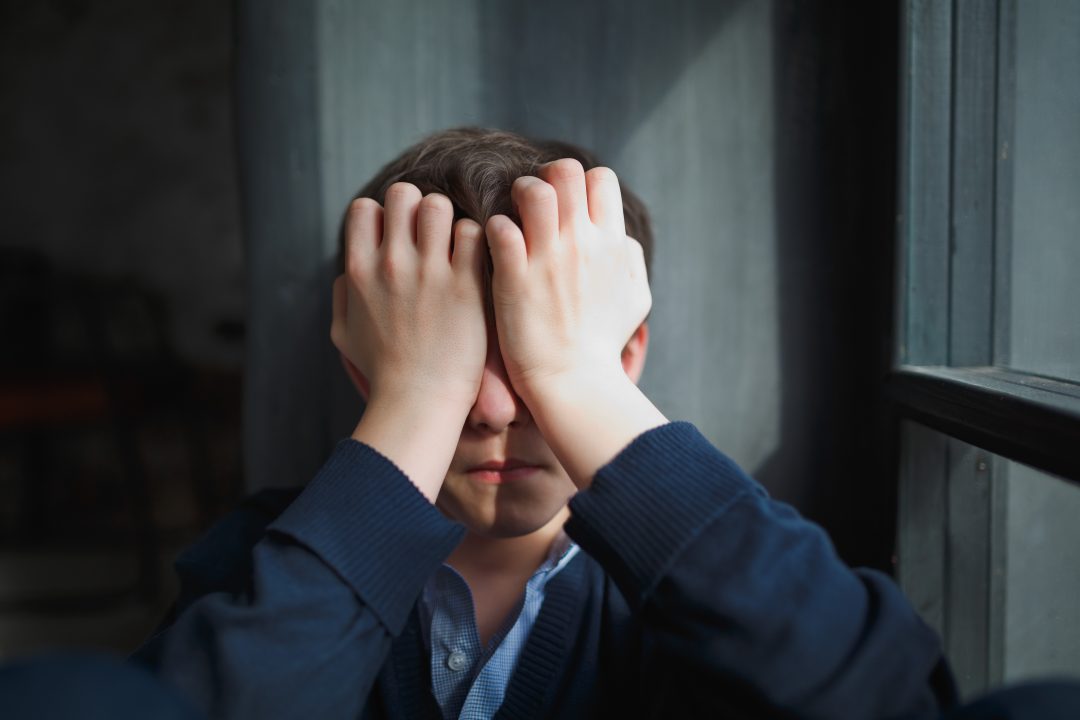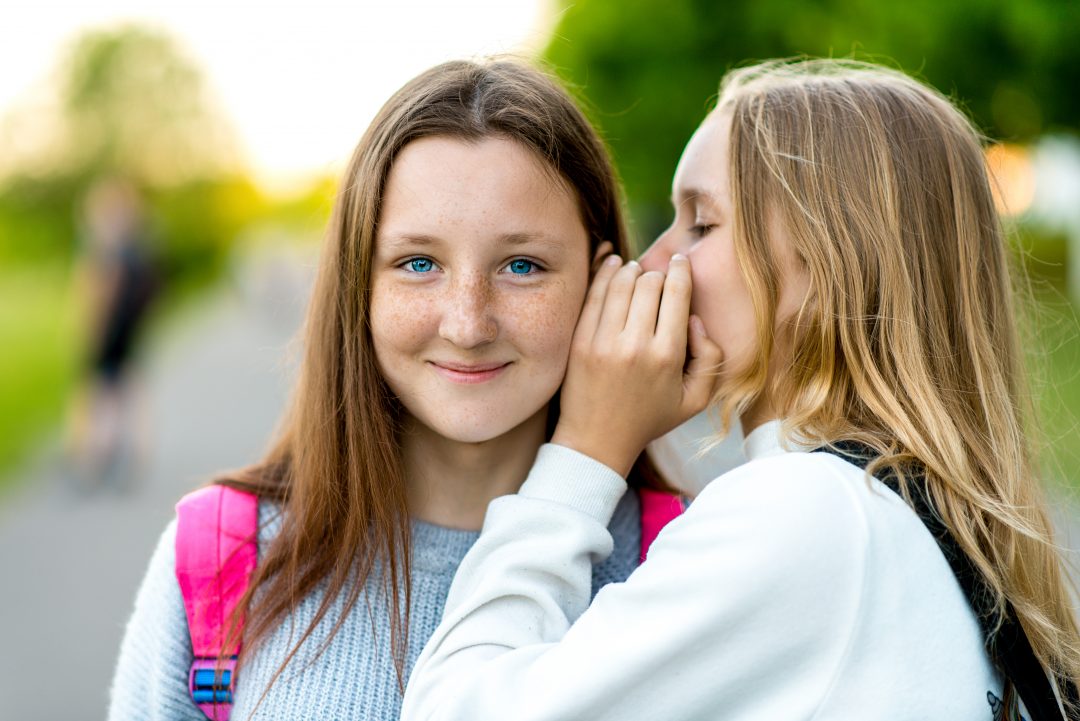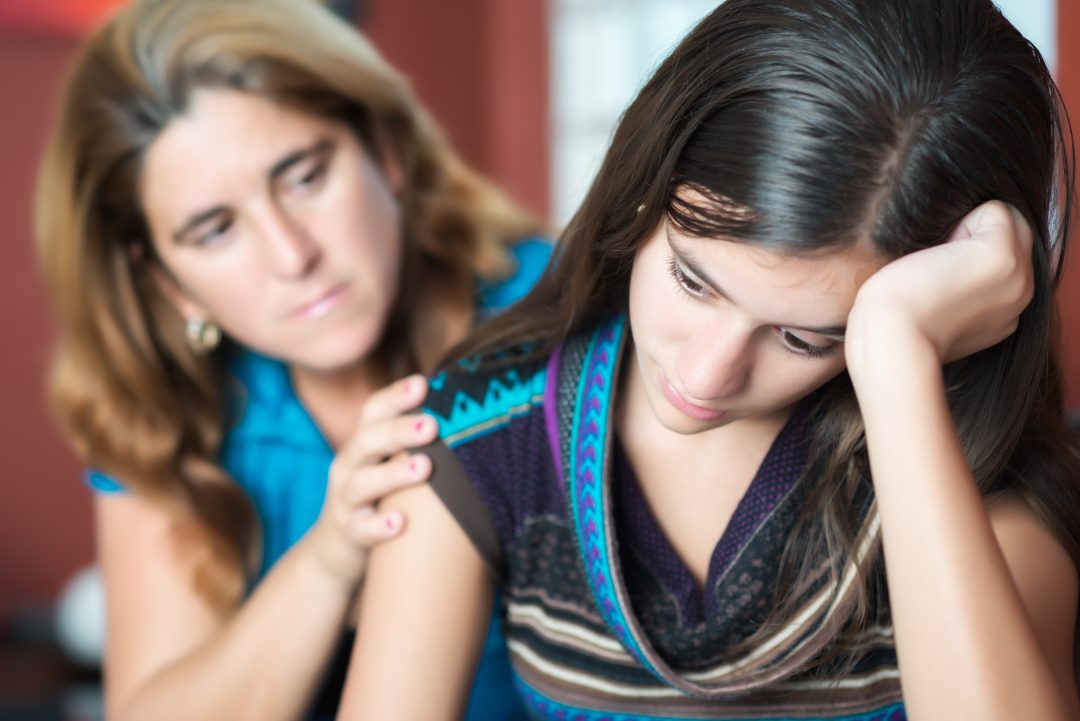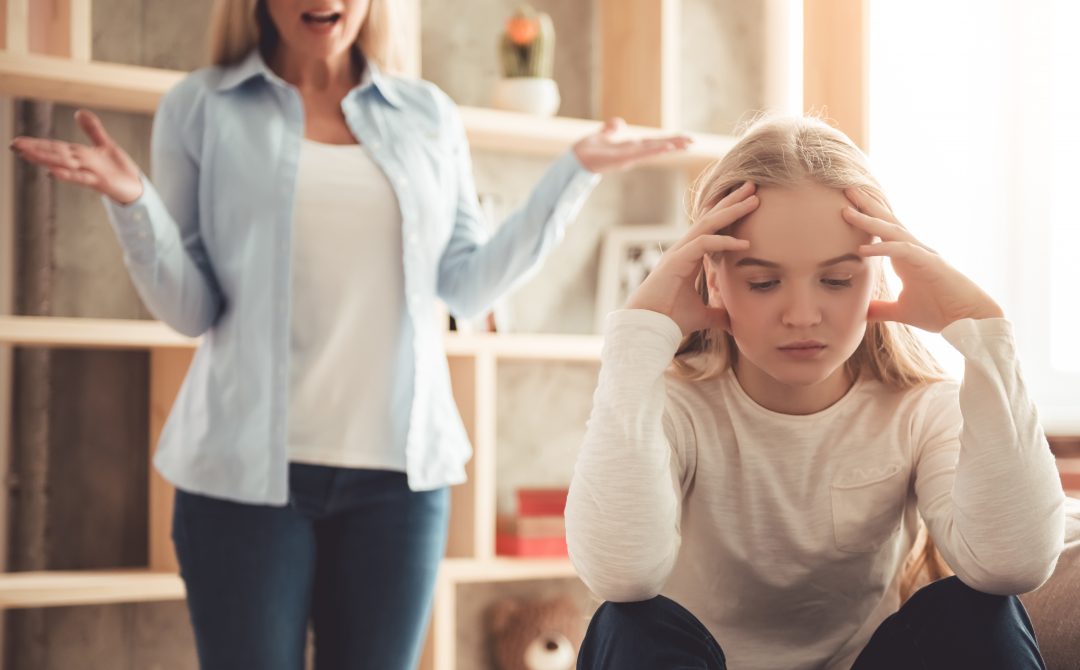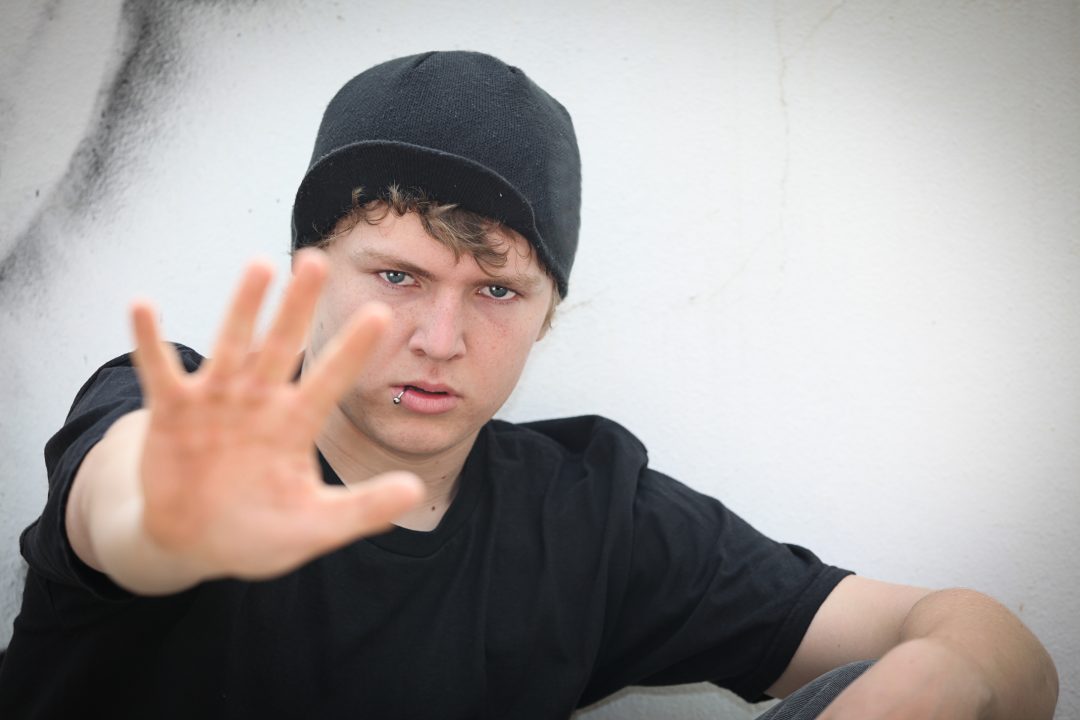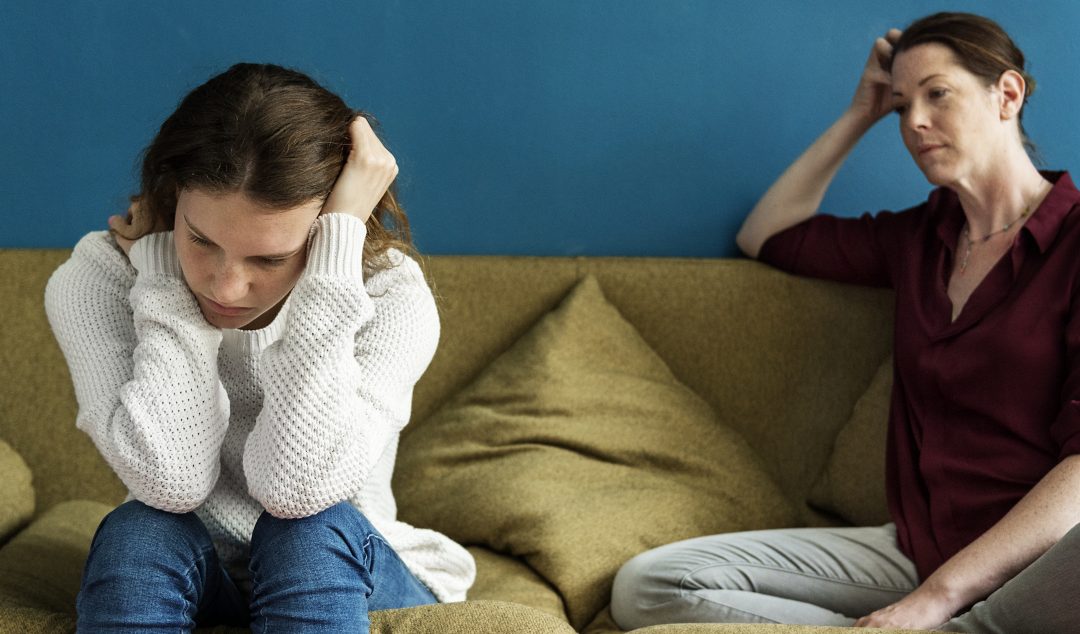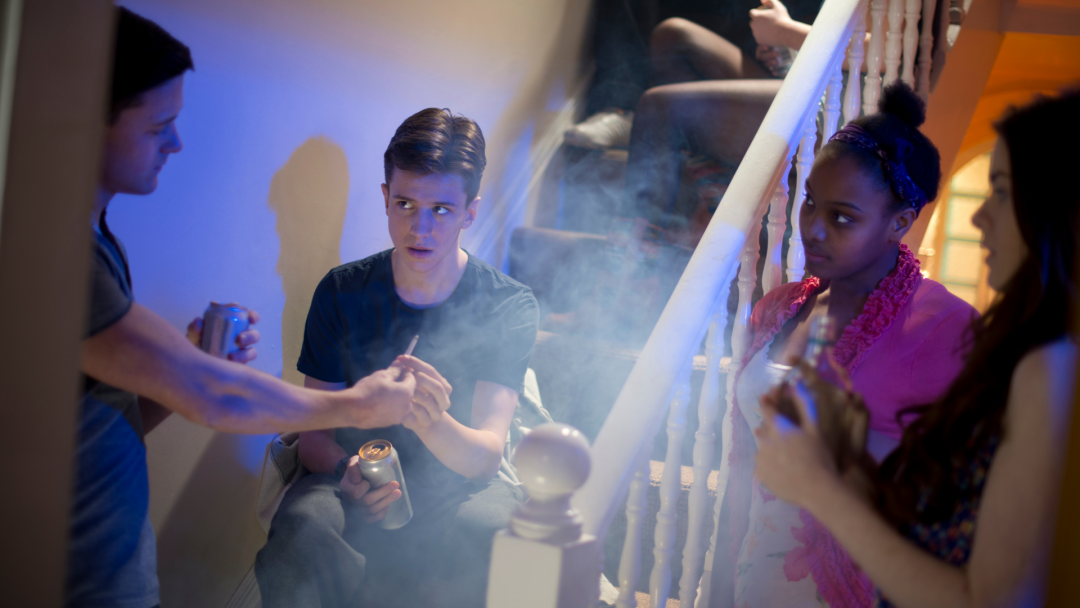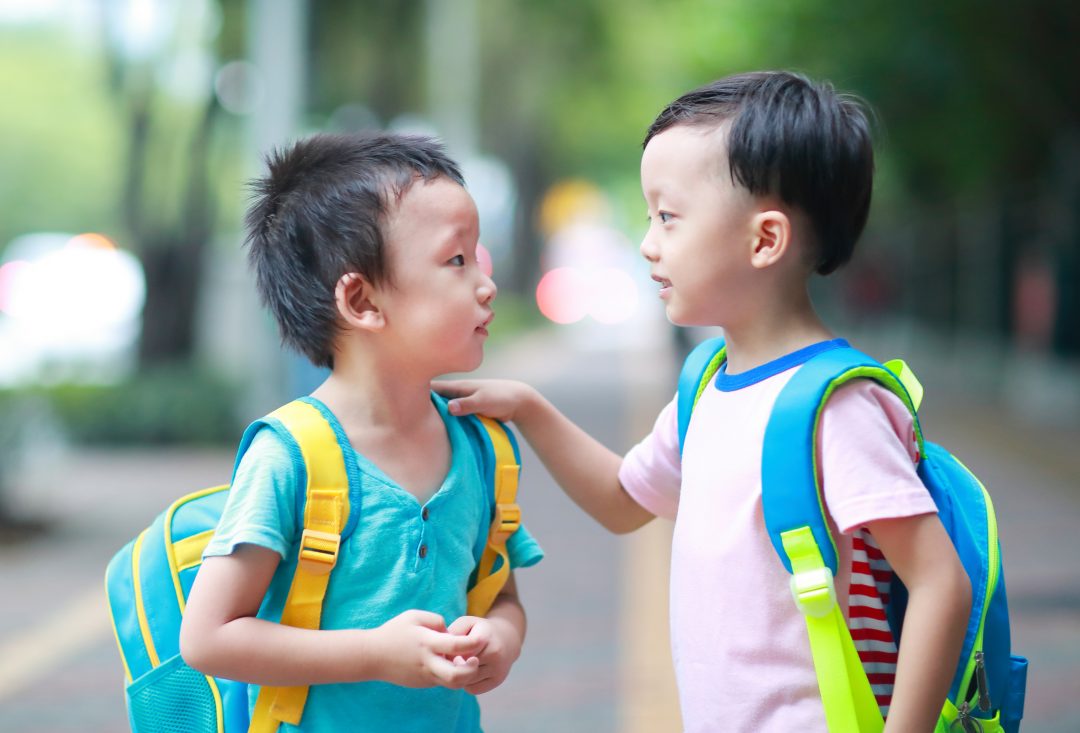How to keep your teen safe and yourself sane
Categories: Teens
7-minute read
Oh, teenagers. How can they go from our lovely children to these hissing cat-like creatures who swipe and then retreat into solitude so quickly? Are they shapeshifters? Are we hallucinating from the exhaustion of parenting into the double digits?
Maybe yes to both those questions, but these delightful young adults are also just doing precisely what this stage in their brain development prompts them to do. According to neuroscience, there’s a perfectly rational explanation for our perfectly irrational teens, and it’s all to do with a little area called the frontal cortex, which is basically ‘shut for renovations’ in adolescence, as ParentTV Expert Nathan Wallis says. Which is terrible timing really, given how much pressure, increased responsibility and hectic hormones come their way at the exact same time as this brain shutdown occurs. That’s a pretty significant design flaw.
But, for all the bad press they get, teenagers can actually be wonderful to be around. Not as emerging adults or older children, but as the people they are at that exact point in time, with all the beauty, power, ideas, feelings, thoughts and plans they come with. Having said that, parents can sometimes be the last people they’ll share their good side with. We’re more likely to cop the swipe and retreat behaviour than the purring kitten stuff. That’s because we’re their safe people, just as we were when they were little, and it’s in this dance with us that they explore the limits of their world, the depths of their bravery, the strength of our boundaries and our capacity to keep loving them, no matter what they do. Word to the wise, this testing of boundaries will include the contents of your fridge, pantry and bank account also. You’ve been warned.
So, how do you keep them safe and yourself sane while you’re in each others’ space? How do you give them what they need without compromising what you believe? What do you need to know about what’s going on with them to do those things? Let the experts be your guide!
Teen brains
Let’s start by looking at that frontal cortex shutdown we mentioned earlier, because it really does impact everything. If you had a 4-year-old and a 15-year-old in your home at the same time, you might notice that they have similar emotional responses to things. That’s because the frontal cortex, the part of the brain that’s responsible for managing emotions, goes through a period of development in the primary school years and then goes offline again in this teenage period.
‘The brain scan of a four-year-old and the brain scan of a fifteen-year-old look incredibly similar, because all the activity is happening in the emotional part of the brain at these ages,’ says ParentTV Expert Nathan Wallis. ‘This is why I’d expect an 11-year-old to be able to control their emotions better than a 15-year-old could.’ In fact, a teenager’s brain still has quite a long way to go, points out ParentTV Expert, Karen Young. ‘The first part of the teenager’s brain to develop is the limbic system, which is driven by impulse and instinct. A lot of their behaviour is driven by this.The final part of the teenager’s brain to develop is the prefrontal cortex (a section of the frontal cortex). This is the part of the brain that helps with decision-making, considering consequences, self-control and emotional regulation. This is not fully online until they’re about 24.’
What does this mean for our teens?
Well, in short, it means that they are ruled by their ‘emotions over logic’ says Nathan Wallis, and this has a huge impact on how they live their lives. It also explains why you feel like they’re a fragile and volatile creature, because they are. ‘You’re not a different species from your teenager, you’re just operating with different ratios,’ Nathan explains. ‘Your brain is 90% logic and consequences and 10% emotion and feeling. Teenagers are the other way around.’ Consider how you might behave if you had big feelings all the time and lacked the cognitive skills to override them. It becomes very hard to engage with the process of sitting with emotions, processing them and making considered responses. It becomes very hard to summon any diplomacy, pragmatism, critical evaluation strategies or make allowances for context and perspective. Put simply, you feel so you act – with a lot fewer checks and balances than we rely upon as adults. The impacts of this have to be significant. ‘The adolescent brain has been compared to a high-performance sports car, but without the brakes,’ says Karen Young. ‘When you add in the fact that adolescents tend to pull away from their parents, you can think of that car as lacking a reliable GPS, too.’ Quite the hazard! Here’s what else these massive brain changes mean for our teens.
Friendships
Even before they were teenagers, your child probably started to pull away from you. ‘Tweens have a developmental imperative to separate and individuate from you, their parents, it’s pre-programmed,’ says ParentTV Expert Susan Stiffelman. In their teen years, they will continue to pull away from you and also start to turn towards their friends. The importance of their peer group should not be underestimated, says Karen Young. ‘Throughout history, all mammals have needed to belong to a pack. Being excluded would mean certain death. That’s how it feels to our teens. It sounds dramatic, and for them, it is. That’s why peer pressure can have such disastrous impacts.’ It’s also why social media is so important to them – the clue is in the name! So, what if your teen is drawn towards kids you’d rather they weren’t? Exercise caution when bringing it up, says Karen. ‘It’s really important for parents to support their teen’s friendships when they can. This doesn’t necessarily mean we approve, but if we disapprove, we need to go gently.’ As with many other things in the teen years, taking a hard line against something as a parent is likely to backfire, Karen concludes. ‘We need to give teens the space to explore their friendships themselves. The more we push against them, the more they’ll feel the need to defend them.’
Relationships with parents
As hard as it can be to keep a good connection with your teen when it feels like they don’t even want to be in the same room as you, it’s important to try, says ParentTV Expert Dr Arne Rubinstein. ‘Maintaining your connection with your teen can be really difficult. We’re busy, our kids are busy, and if we’re not careful, we can find ourselves drifting apart. But, we really need to be finding ways to be more connected to them, not less.’ This connection helps form their identity and this identity is key to surviving the tumult of teenage years, Arne says. ‘A strong, healthy personal identity is what will get your kids through their adolescence. The relationship our kids have with us is one of the major ways their identity is formed. Making the time and space for clear one-on-one time with us as their parents is really important. Finding something you enjoy doing together and being fully present when you do it is vital. Don’t ask lots of questions, don’t try to give them advice, just be together. They might open up, they might not, but it’s critical that you give them this time. Eventually when they need to, they’ll know you’re available if they have a question or need to talk.’ Ultimately, ‘Parenting adolescents is about finding that magic mix between maintaining emotional connection and maintaining boundaries,’ says Karen Young.
A final note on this – keep in mind that teens use a different part of their brains to read facial expressions and they are more prone to misinterpreting what they see. That’s why they might say (and feel) like you’re always angry with them. ‘A lot of the disputes that come between teenagers and their parents or teachers are because teenagers perceive that their teacher hates them or their parents are disgusted with them,’ says Nathan Wallis. ‘But, that’s because teenage brains are predisposed to reading anger in our facial expressions, even when it’s not there.’
Decision-making and judgement
Oh, boy. This is probably one of the most fraught areas to navigate for parents, and for the teens in question, too. Sometimes they do dumb things. Sometimes they make really kind of terrible decisions, and we wonder whether they were thinking at all. But, as Arne Rubinstein asks, can any of us say we never did dumb things as teenagers? ‘When I ask parents if they mucked up as teens, they always say yes,’ Arne says. ‘This indicates that our children are going to muck up, too. I actually believe they’re supposed to muck up and make mistakes and learn from them. These mistakes can be great opportunities for them to get that learning, and for us to build our connection with them by supporting them through it. So, when your child does make a mistake, separate the person from the behaviour. Tell them that what they did wasn’t okay, but you love them and you’ll work out what to do about it together. This can actually bring you closer.’ This is both a blessing and a curse, confirms Karen Young. ‘Our greatest opportunity and greatest challenge as parents of adolescents is creating a space where they can discover the lesson that comes from a mistake, without you shaming them. That way, if it happens again, they can redirect themselves and make safer, braver choices.’
One way to do this is by helping teens reframe the impacts of an action they’re considering, says Karen. ‘We need to help teens switch on their prefrontal cortex by asking them to tell us what the potential consequences of something are.This gets them thinking about possible negative outcomes as well as the positive ones that they tend to focus on.’ You can help them use this inclination to their advantage by emphasising rewards rather than punishments, too, Karen says. ‘For example, we need to talk to them about how great they’ll feel after they finish studying instead of about how they might fail if they don’t study. That doesn’t land on them as powerfully as the suggestion of the rewards.’ At the end of the day, we need to collaborate rather than dictate, and let them know we can handle whatever they tell us, our experts agree. ‘Teenagers will make mistakes,’ says Karen, ‘but we need to keep the emotional connection strong enough that they will still come to us when they make those mistakes.’
Safety
So, given what we know about teenagers and their tendency to act without a whole lot of forethought, how do we keep them safe when they want to go to parties, start exploring their sexuality and sex, experiment with alcohol and marijuana and stay out late? Well, it’s important to empower them with knowledge about what they’re getting into, our experts say. Giving them balanced, factual information without judgement or heavy-handed moralising is likely to be more effective than trying to control them, scare them or make the decisions for them.
A good way to frame things is to connect privilege to responsibility, suggests Arne Rubinstein. ‘Say they want to go to a party and you’re not 100% comfortable with it. Going to that party is a privilege. As the parent, you want to know who the parents are and you want to be able to speak to them. You want to know your teen’s not going to come home drunk or stoned. You want to know that they’ll have a chat with you afterwards about how it went. And if all that can happen, you’ll be more comfortable next time, and you might say they can stay out later. But, if these things don’t happen, then you won’t be able to let them go the next time there’s a party. It’s an agreement between you.’ If they aren’t ready for the responsibility, they’re not ready for the privileges either. Besides this, if you just say a flat no without discussing it, you’ll probably just drive the behaviour underground, our experts say, and your teen will be more likely to rebel, sneak out or lie rather than discussing their movements with you at all. This, of course, makes it even harder to keep them safe. ‘We really want to strengthen our teenager’s belief in themselves and their capability and judgement. If we question their judgement all the time, they will, too,’ says Karen Young.
If you’re at home with a teenager, why not try showing them a few ParentTV videos? Here’s some suggestions on where to start:


